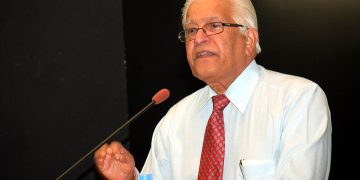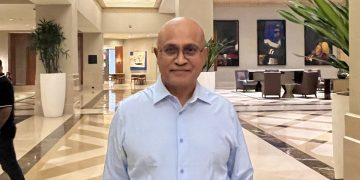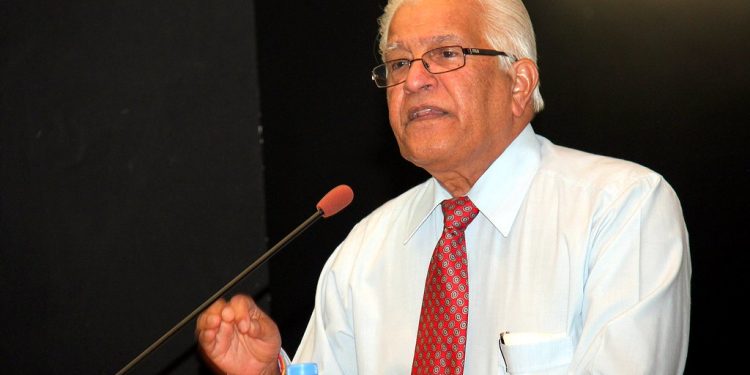From Dr Varma Deyalsingh
On New Year’s Eve, my family and I witnessed all the hype and excitement of the iconic ball drop in Times Square, New York City. I cherished this family time and the fond memories that it created.
My New Year’s exuberance, however, was broken by the sad news of the passing of Mr Basdeo Panday.
I have many memories of this stalwart, his wit, and humour, the cut and thrust of his politics, which put many aspiring prime ministers in the political graveyard, his cardiac health challenge which never slowed him down, the sullying of his character via the Piarco International Airport and London bank account scandals and his grand finale battle for his political survival within his party.
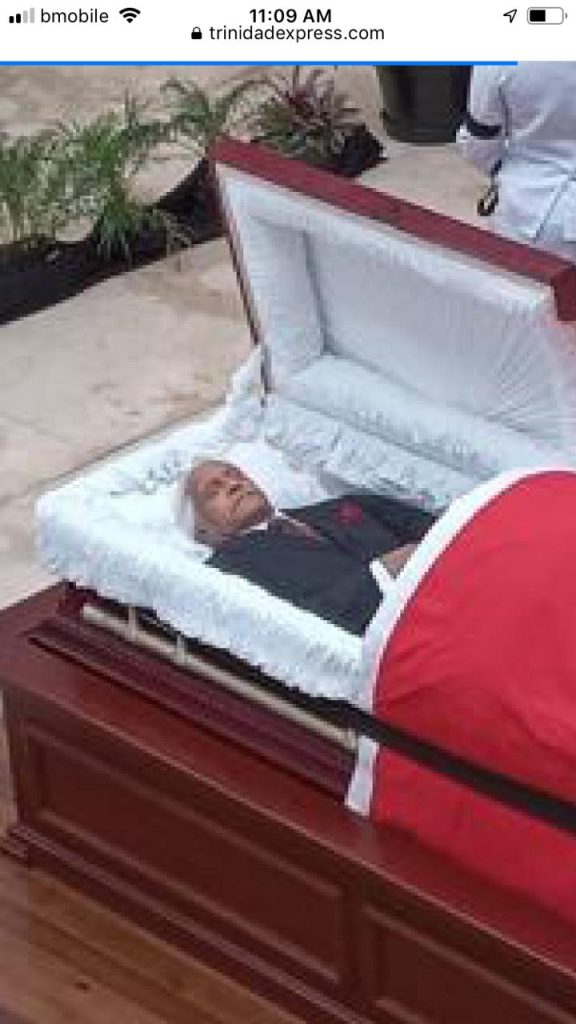
 Today, there are many Neemakarams who are now singing praises to the deceased, but a short while ago they demonised him. Such is politics. A bitter enemy one day and the best thing since sliced bread the next. Hugs by day and stabs by night.
Today, there are many Neemakarams who are now singing praises to the deceased, but a short while ago they demonised him. Such is politics. A bitter enemy one day and the best thing since sliced bread the next. Hugs by day and stabs by night.
But Panday was no stranger to this. His history was filled with grabs for power, which revealed the dirty side of politics, and the country witnessed frequent public brawls.
He fell out with George Weekes, Raffique Shah, Ramesh Maharaj, Jack Warner, Trevor Sudama, Kelvin Ramnath, ANR Robinson and Winston Dookeran, just to name a few.
It was typical opposition politics, where more time was often spent opposing one another rather than the People’s National Movement. It seemed this was the way of opposition politics, as the DLP before had left many splintered parties in its wake.
He was a man of many faces and meant many things to different people. He was an inspiration to the downtrodden, he was a nemesis to those, who in true Machiavellian fashion, he destroyed politically.
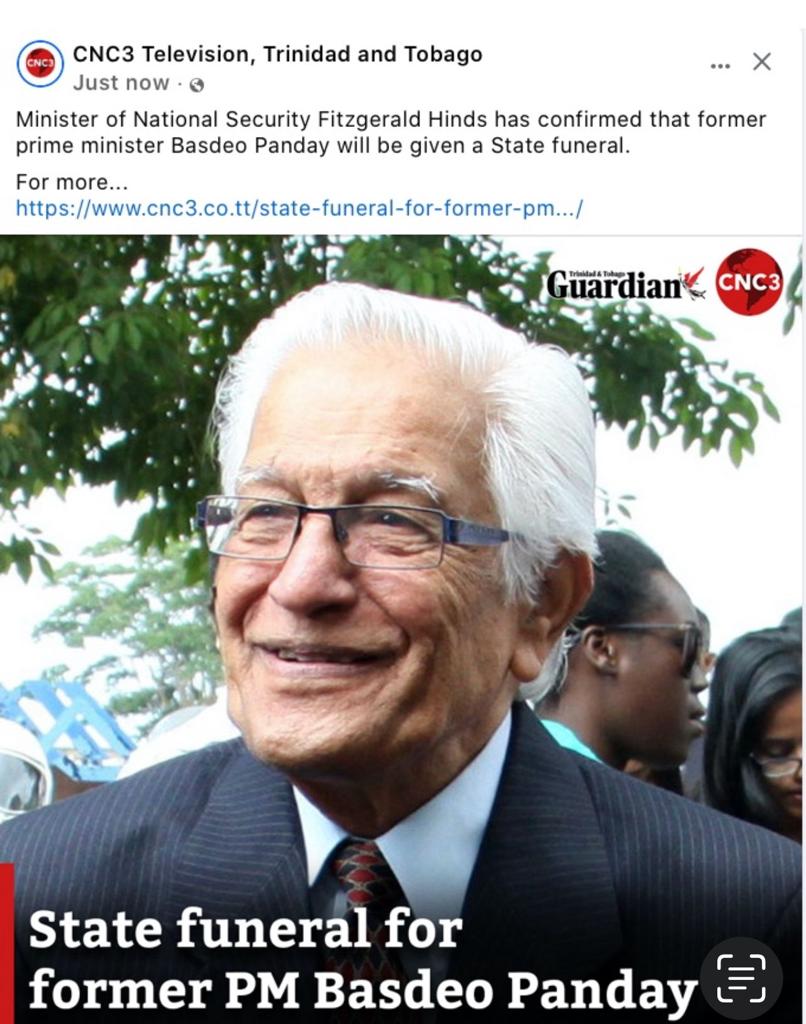
He started attending school barefoot but ended up being an attorney, a trade union leader, and a prime minister in this land of opportunity.
Report Ad
He became a symbol to the Indian and Hindu community, who felt proud that at long last one of their ‘recalcitrants’ could became our prime minister.
In 1986, when the National Alliance for Reconstruction assented to office, it was both disheartening and insulting to know that journalist Gideon Hanoomansingh had to scramble to find a Bhagavad Gita for President Clarke to swear in Panday as a minister.
Next Tuesday, we will be making history by having the first state funeral to be held under Hindu rights in the Western Hemisphere.
When Panday wrested leadership from the All Trinidad Sugar and General Workers’ Trade Union incumbent, he expanded the union to represent industrial workers. He proved himself a crafty opponent and established himself as a champion of the working class.
He understood that any opposition party that hoped to win elections must draw support beyond the boundaries of the traditional ethnic base, and fought tirelessly for various coalitions to gain national acceptance.
Report Ad
He brought the UWI academia into his party, shedding his labour image and showing us he had an amalgam of talent at his side.
He moved from being a Marxist, marching with George Weekes in the Workers’ and Farmers’ Party, to being a close associate of the head of the CL Financial conglomerate.
His political ideology either evolved with time or was used as a stepping stone, giving him a political niche to advance. He definitely needed to adapt his ideology when he was faced with the realities of governing our country.
During his tenure, we did not see any drastic economic upheavals, the ‘parasitic oligarchy’ was untouched; however, Panday’s policies and legislation did improve the lives of many.
He surrounded himself with both capable patriotic persons and unfortunately, some smart men who served their own self-interest, much to the dismay of long-standing party loyalists.
It was remarkable that Panday could have switched from speaking with an Oxford accent, while entertaining a visiting diplomat in the White Hall, to playing tabla and singing Bhajans, while attending a village wake.
Recently, during his public appearances, he was surrounded by the outpouring of love from people. He was a man of the people. People say they sensed his genuine struggle for national unity, improved education, and justice for all.
In the next 50 years, his name will just be a name in our history books. This is a disservice to the future generations who would not have been here to see him in action. I feel proud to have lived in this era. It provided me with the memory of such a fantastic political legend.
As I returned from NYC yesterday, I stopped at Piarco Airport’s Atrium and bowed my head beneath his picture and silently said, thank you, Bas, may you rest in peace.
